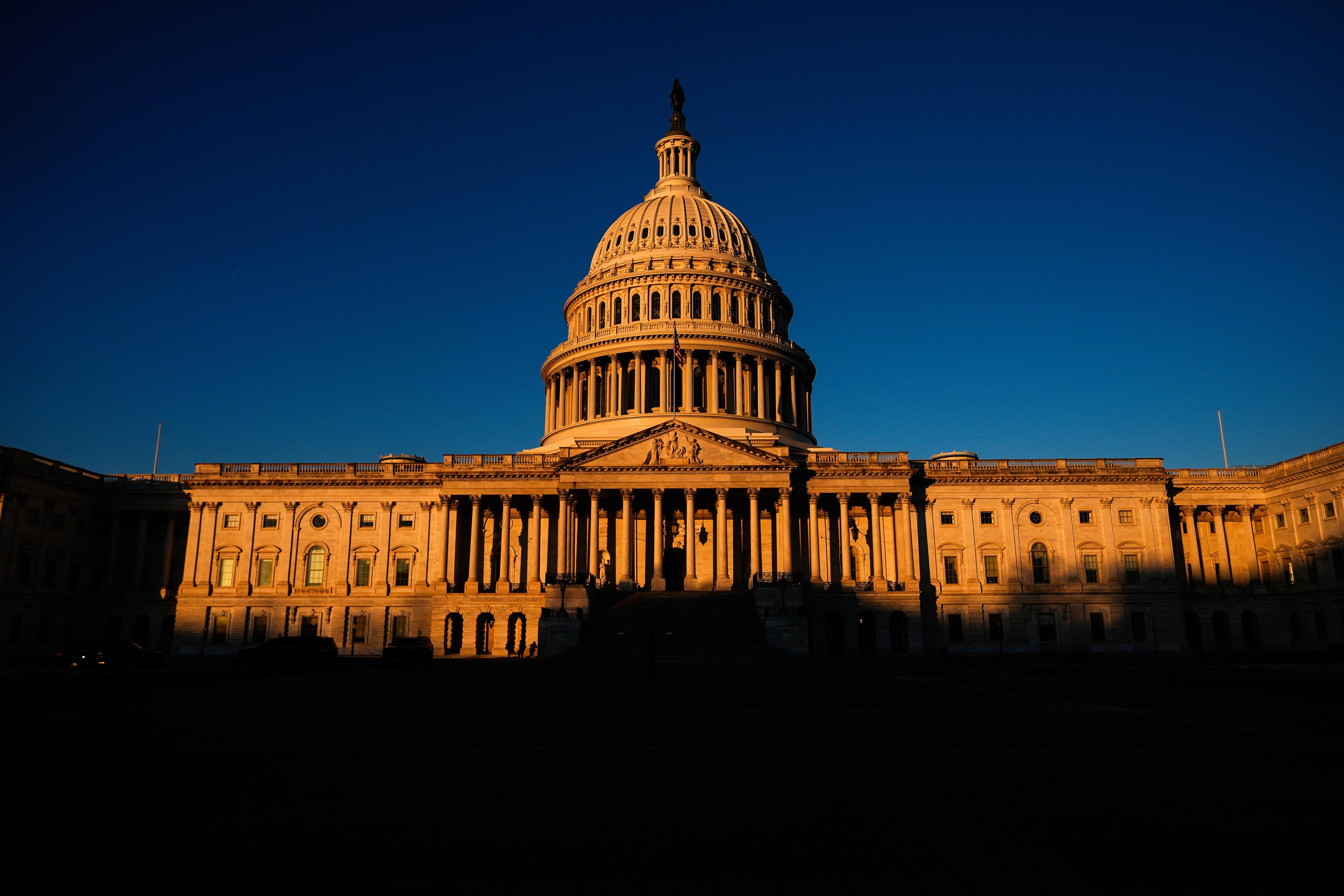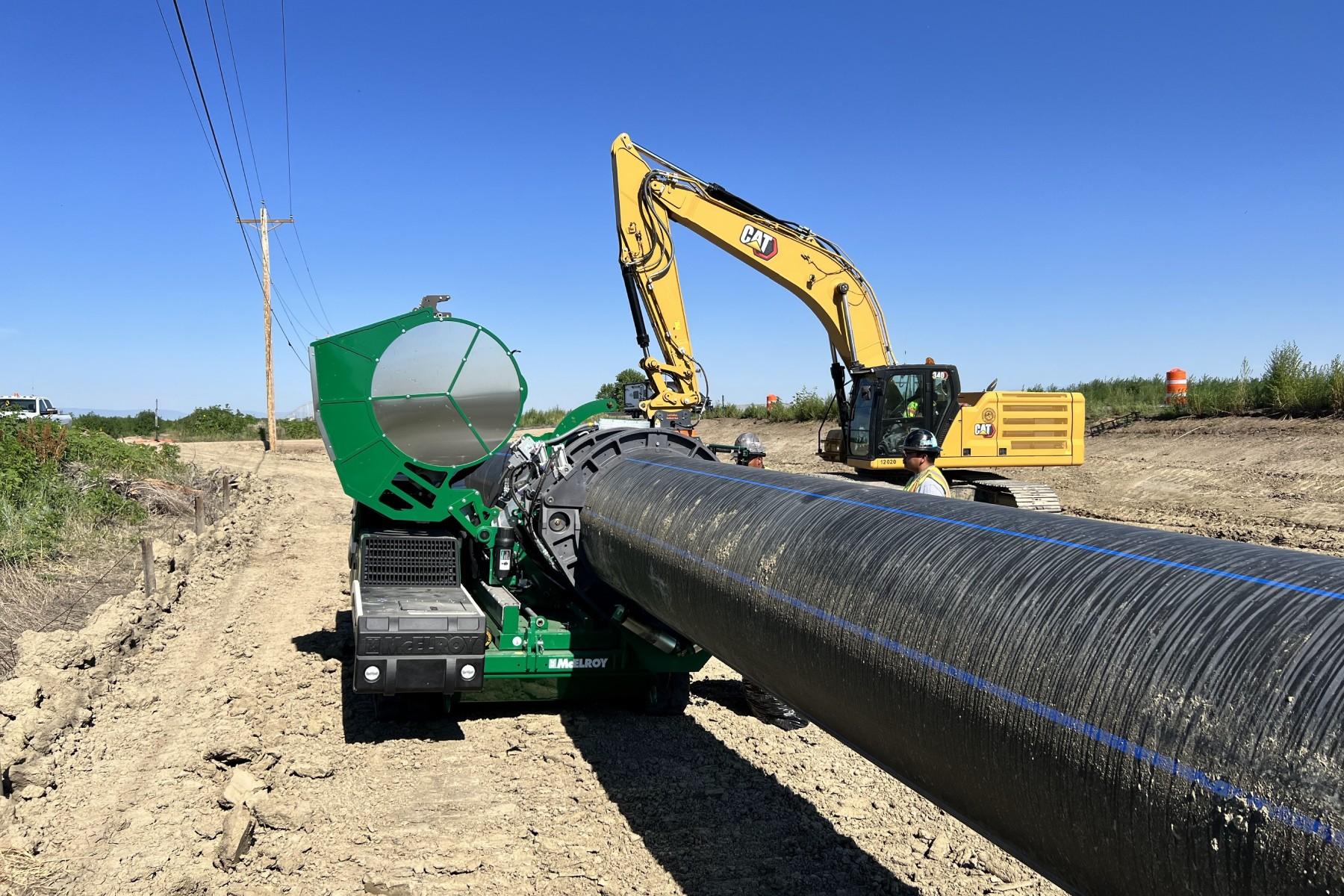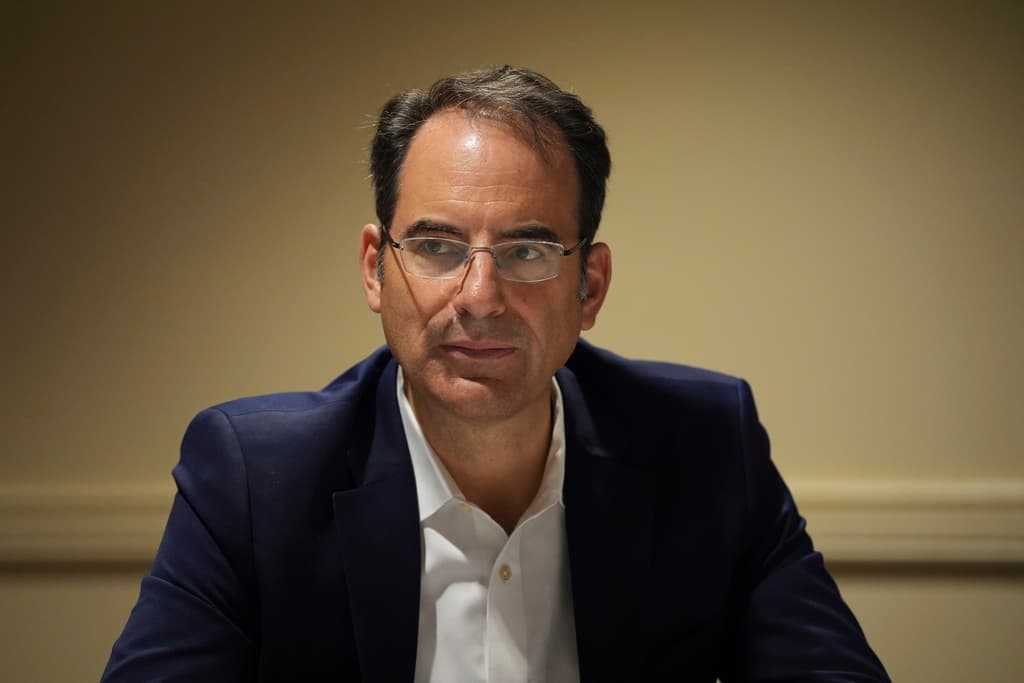
There was optimism at The Denver Post just a few short months ago, when the largest newspaper in Colorado started charging online readers with the hope that digital subscriptions would end newsroom downsizing. Now the paper has announced plans to lay off another 30 staff members.
Editor Lee Ann Colacioppo tells Colorado Matters the online paywall hasn't had time to work yet.
"It's just been a short time and the economic forces that were in place when we put up that paywall, that model, haven't reversed themselves," she says.
Colacioppo said in January that digital subscriptions may even help the newsroom — which was down to about 100 journalists from a peak of 300 — start to grow again. Now, she says she's still hopeful that could happen, despite the further looming cuts.
"I still think we're well situated, even with these cuts to continue doing the type of work that [new digital subscribers are] paying for," Colacioppo says.
She says the new revenue generated since the paywall went up has gone "straight into our pockets... into the operations of The Denver Post."
The newspaper's hedge fund owner, Alden Global Capital, has received a lot of criticism since the new cuts were announced. Colacioppo does not blame the owners, though.
"I think we have different goals. I think they own newspapers, they've been trying to help us figure it out, they have, and, this often gets lost, invested in newspapers," she said. "We could never have even put up the digital subscription model without an investment from them. So this suggestion that they don't care at all about the newspaper is, I think, untrue."
Read The Transcript:
Ryan Warner: This is Colorado Matters from CPR News. I'm Ryan Warner. There was optimism the last Lee Ann Colacioppo: Thank you for having me. RW: What happened? LC: Well, of course, we’re still, I'm still very optimistic about the digital subscription model, but it's only a few weeks old. It just hasn't had time to really take hold and get us where we want to be. In the meantime, it's time for the budgets. We're looking at where we are this year. We're looking ahead to next year, looking ahead to how the revenue is coming in, and to a great extent, that's where these layoffs are coming out of is that the industry is still struggling and we haven't had it happen yet. I don't think anybody thought that we would solve the entire problem six weeks into a digital subscription model. RW: The critical question is the paywall must have generated some revenue. LC: Yes. RW: Where did that money go? And what do you think was the expectation readers had when they signed up? LC: I hope that readers were signing up because they understood that journalism isn't free. All the things I've talked about before, that they understood that to support the work that our newspaper does requires a lot of money. That remains true at this moment. Nothing in that world has changed and I still think we're well situated even with these cuts to continue doing the type of work that they're paying for. However, we just, it's just been a short time and the economic forces that were in place when we put up that paywall, that model, haven't reversed themselves. RW: So to someone who signed up for the paywall and asked, "Where did my money go?" What do you say to them? LC: It went straight into our pockets. It went into the operations. It went into the operations of The Denver Post. RW: At its height, The Post had about 300 people in the newsroom. It's about a hundred now and it would go down to 70 after the cuts, which haven't occurred yet, by the way. Some might contrast 70 and 300 and say, "How can you remain optimistic?" LC: One thing I want to point out is this problem is not a Denver Post alone problem. We're really talking here about something that is hitting newspapers across the country, regional newspapers, us, my old newspaper at The Des Moines Register, other papers in Colorado, our sister newspapers. All over the country, regional newspapers are going through these kinds of reductions. Wait, what was your question? RW: That's okay. My question- LC: I'm sorry. RW: My question is how you remain optimistic when you're talking about 70 versus 300? LC: Right. Well, if I was having to go from 300 straight to 70, it would probably be more than you could take. But here's what I know. I know what kind of work newsrooms with 30 people have done. I certainly don't want to be there. But the kind of work you do, the kind of stories you attract, it's a matter of being smart in how you're using the people in the newsroom, knowing your city, knowing your community like we do, and then making great choices about doing important work and knowing that you can do it no matter what. RW: Last week you told your staff about the layoffs. You've been at The Post for I think 20 years and so these are longtime colleagues. How did you approach having to do something like that? LC: Well, first, you don't sleep for a few nights and then I just, we brought everybody in and I just tried to approach them with the respect that I actually feel for them, thanked them for their hard work and then be completely honest. I didn't want to try to sugarcoat where we were going or the number or that it was going to be a difficult situation and the result was, as was reported, at the time that people were gasping and they were crying because this is a newspaper that is close to them. They've made the decision to be there. They believe in the work. They believe in journalism. So to hear that kind of number and to look to the left and to your right and know that one of those people would be gone was really difficult. RW: I want to say that you haven't decided which jobs specifically will be cut. LC: Correct. RW: You'll see who volunteers, opts for a severance package. You talked about what you can achieve with 30 fewer journalists. How do you deploy, how do you make those decisions about where to focus coverage and what gets cut? LC: Well, we're still working through that to a great extent. Some of it will be we staff almost, not quite 24 hours a day, but very close to it. So, you gotta look at how you're staffing. Is it really- RW: Will you be round the clock or not? LC: Right. Does it make a lot of sense to have somebody there at midnight on Saturday? Probably not. Make some choices like that, so that you are making sure that you're keeping your reporting and your visual resources very much focused on the subjects that we know are most important to Coloradans. RW: Visual resources meaning photographers. LC: Photography. RW: Videography. LC: Right. RW: If there is a beat or a type of coverage that you think would have to fall by the wayside, what might it be? LC: I'm not sure. RW: Okay. LC: I'm not sure that we are going to be, I'm not sure that we're going to have to make that choice. I hope not. RW: We reached out to Alden Global Capital. This is the hedge fund that is the majority owner of Digital First Media, the Post's parent company; and it owns other papers across the country including in Colorado, Longmont Weekly, The Broomfield Enterprise. We haven't heard back, but what have you heard from owners about these cuts? LC: I haven't really had any contact with the owners on these cuts. RW: Does that surprise you? LC: No. The way it operates with Digital First and with Alden is that, basically, the properties, The Denver Post, The Boulder Camera, all the various newspapers are self-sufficient. We're expected to set a budget, meet a budget, and proceed from there. So, we don't really operate and it's not a tight corporate setup like that, where you would have a lot of contact. RW: I'll say that Alden Global Capital and Digital First have been criticized for enriching themselves by cutting into bone at newspapers across the country. A former Post reporter, Eric Gorski, who's now at the education publication Chalkbeat, said Friday that what it's doing is borderline criminal. What's your view? LC: It pains me to see what's happening, and I wish it wasn't going to happen like this. I also understand that this is a business. I understand that you can't make less and less money year after year after year. You have to have your expenses and your revenue in-line with each other, so I accept that part of the business as much as I don't like it. RW: Do you feel that the owners of The Denver Post care about its mission? LC: I don't think anybody cares as much about The Denver Post mission as the people who are working in this city and trying to put out this newspaper every single day. I think we have different goals. I think they own newspapers, they've been trying to help us figure it out, they have, and this often gets lost, invested in newspapers. We could never have even put up the digital subscription model without an investment from them. So this suggestion that they don't care at all about the newspaper is, I think, untrue. RW: But when you say they have different goals, what do you mean? LC: Well, I mean that they are a business trying to run a business, and so it's more about that to them than this, what for me is, a deep driven desire to serve a community, and to do the right things in the community, and to expose wrong doing and tell the tales of the people who are voiceless in this community, expose things, all of that. That's the soul of what I do, and I don't think it's the soul of what they're doing, which isn't a bad thing. We're just different. We just come from different places. RW: There have been calls for the newspaper to be sold to a new owner. The Denver Newspaper Guild said it tried unsuccessfully to run an ad in The Post that said in part, "We demand that The Denver Post owner, Alden Global Capital, sell the newspaper to local interests who care about this state and the role that vibrant independent journalism plays in its civic life." Meanwhile, the columnist Mike Littwin says the governor should step in. What do you make of all that? Is it realistic to think someone could come in and buy the Post? LC: Sure. I mean, I think that it's realistic to think that there's people out there who would like to invest in a local newspaper, but it would be way beyond any of my knowledge to know what that cost would be, or what the business considerations would be in whether to sell it. It wouldn't be my place to speak to that. RW: What, if anything, are you hearing from readers right now? LC: The outpouring of support from this community and from readers has been overwhelming. RW: Are you also hearing from people who just say, "This isn't what I paid for." LC: A little of that. A decent amount of, "You know, do what you gotta do. If we have to put up with a few more typos, we'll put up with it to actually get the heart of the news." Some, of course, of people who saying, you know you should go away, you're irrelevant anyway, and we cheer the end of newspapers, which is a sad and very shortsighted way of looking at things. But we also had, I don’t know even how many people donate to a money, an account to go buy a beer for our staff the night of the announcement so something like $1000, so we've mostly heard really great things. RW: Thank you for being with us. LC: Thank you. RW: That is Denver Post Editor Lee Ann Colacioppo talking about forthcoming layoffs in her newsroom. After a break, why does a hedge fund invest in newspapers in the first place? This is Colorado Matters from CPR News. |








